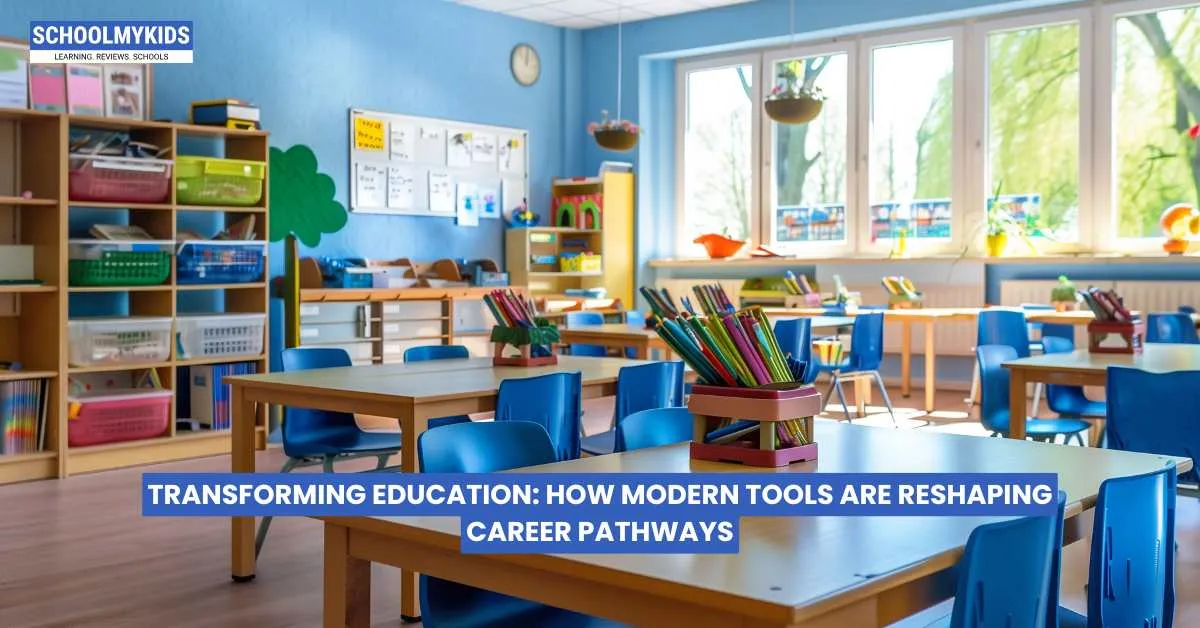Education has always served as the cornerstone for career development, but today's rapidly evolving landscape demands innovative approaches to learning and professional preparation. As traditional boundaries between the classroom and the workplace continue to blur, educational institutions and students alike are embracing transformative technologies and methodologies that promise to redefine how we acquire knowledge and navigate career paths.
Revolutionary Educational Tools: Breaking Down Barriers
The educational landscape is witnessing unprecedented transformation through virtual exchange programs and blockchain technology. Virtual exchange programs have emerged as a game-changing solution, allowing students to engage in global learning experiences without the financial and logistical constraints of traditional study abroad programs. These programs provide inclusive access for students facing barriers to physical mobility, including financial, health, or visa limitations.
Research demonstrates the tangible benefits of virtual exchanges, with studies tracking over 47,000 students showing that participants experience increased GPA, improved first-year retention rates, and higher graduation rates. Particularly noteworthy is the impact on underrepresented groups—first-generation college students, financially disadvantaged students, and minority students who participate in virtual exchange programs benefit significantly more than their demographic counterparts.
Simultaneously, blockchain technology is revolutionizing credential management and transcript security. By storing academic records on decentralized, tamper-proof systems, blockchain enables real-time verification and sharing of educational credentials. This innovation eliminates the weeks-long process of transcript generation and verification, providing students with immediate access to their academic records while ensuring authenticity and preventing fraud.
Career Opportunities Through AI-Powered Guidance
The integration of artificial intelligence in career counseling represents a paradigm shift in professional guidance. AI-powered career counselors analyze vast amounts of personal and professional data, examining everything from skills and experience to current job market trends. This comprehensive analysis helps students discover career paths they might never have considered while providing real-time updates on industry demands and emerging opportunities.
A 2022 Deloitte study revealed that 65% of users who utilized AI-driven career platforms reported more informed and confident career decisions. These systems can scan millions of job postings in seconds, identify in-demand skills, and compare market requirements with individual skill sets, offering personalized career roadmaps that traditional counseling methods often cannot match.
The efficiency gains are substantial—AI can automate repetitive tasks such as resume analysis and job matching, allowing human counselors to focus on higher-value strategic guidance. This technology addresses long-standing challenges in career counseling, including a lack of personalization, limited industry insights, and the inability to keep pace with rapidly shifting workforce trends.
Optimizing Learning Environments: Finding the Right Fit
The debate between silent study spaces and collaborative environments reflects broader questions about how we learn most effectively. Libraries continue to excel as focused work environments, with 77% of students believing libraries help them succeed academically. These spaces offer quiet, distraction-free environments specifically designed for deep concentration and serious academic work.
Conversely, co-study cafés provide dynamic environments that can stimulate creativity through moderate ambient noise, which research suggests can boost creative cognition for some students. The phenomenon of social facilitation occurs when students are inspired by the focused energy of others around them, creating natural motivation and accountability.
The key lies in understanding that different tasks require different environments. Reading and synthesizing complex material may benefit from library quiet, while creative brainstorming or collaborative projects might thrive in the energetic atmosphere of a café. Students increasingly recognize the value of experimenting with various study environments to optimize their learning outcomes.
The Future of Education-Career Integration
As we advance into an increasingly digital and interconnected world, education is evolving from a discrete phase of life into a continuous, adaptive process. Virtual exchanges break down geographic barriers, blockchain ensures credential portability and security, and AI provides personalized career guidance at scale. These innovations collectively address traditional education's limitations while creating new possibilities for learner engagement and professional development.
The convergence of these technologies suggests a future where education becomes more accessible, personalized, and directly aligned with career outcomes. Students can now engage with global perspectives from their home institutions, maintain secure and portable academic credentials, receive data-driven career guidance, and optimize their learning environments based on individual preferences and task requirements.
This transformation represents more than technological advancement—it signals a fundamental shift toward learner-centered education that adapts to individual needs while maintaining the rigor and quality essential for career success in an evolving global economy.








Be the first one to comment on this story.